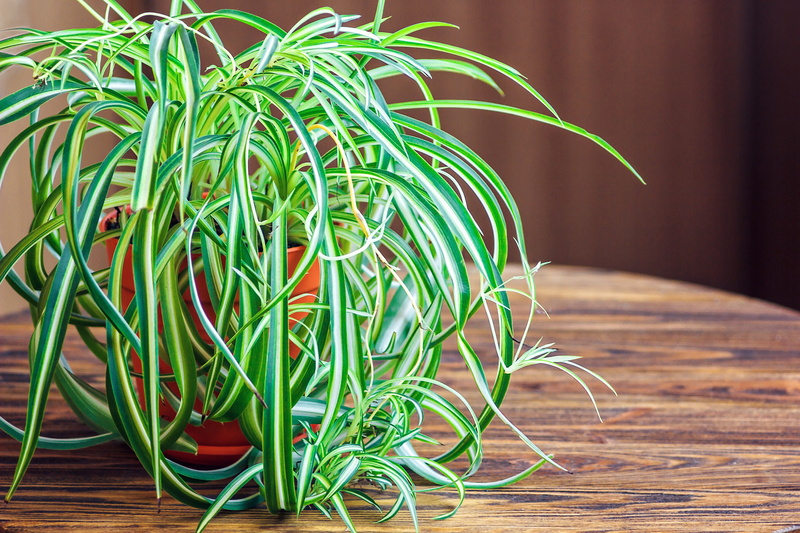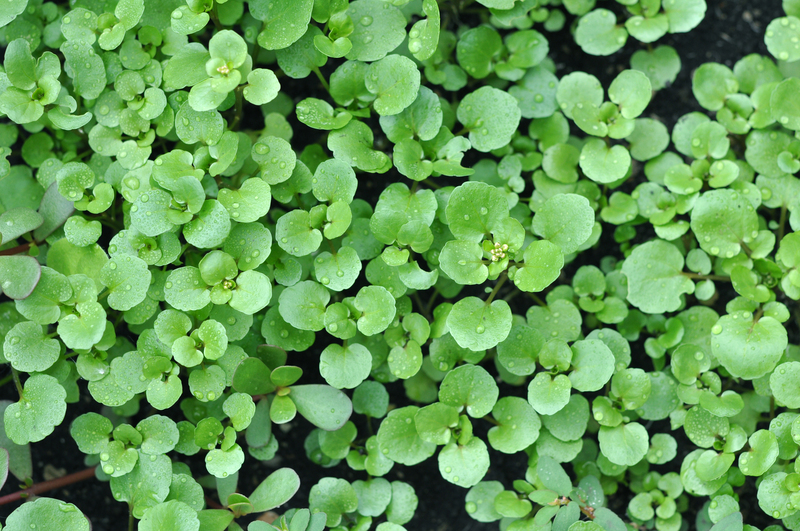Enriching Your Garden Using Recycled Organic Materials
Posted on 15/06/2025
Enriching Your Garden Using Recycled Organic Materials
Gardening enthusiasts and eco-conscious homeowners are continuously seeking effective and sustainable ways to enhance garden soil and boost plant health. Enriching your garden using recycled organic materials is among the most environmentally friendly and cost-effective methods available. Whether you want to create lush vegetable patches, colorful flower beds, or sustainable landscapes, incorporating organic waste recycling into your gardening routine delivers a wealth of benefits.
Why Choose Recycled Organic Materials for Your Garden?
As society gravitates towards greener living, recycled organics for gardening have become an essential resource. Utilizing items that might otherwise end up in landfills allows gardeners to enhance soil fertility, reduce waste, and support biodiversity.
Key Benefits of Using Recycled Organics
- Reduces Landfill Waste: By transforming kitchen scraps and yard waste into valuable soil amendments, you directly minimize environmental impact.
- Improves Soil Structure: Organic matter fosters healthy soil texture, allowing for better water retention and root growth.
- Encourages Beneficial Wildlife: Recycled materials attract earthworms and microbes, which are instrumental in natural soil aeration and nutrient cycling.
- Promotes Plant Health: Emerging research shows gardens fed with recycled organic inputs exhibit robust growth and superior yield.
- Saves Money: Home-based recycling of organics reduces expenditures on commercial fertilizers and soil conditioners.

Types of Recycled Organic Materials for Gardens
The options for enriching your soil using recycled organic materials are diverse. Below, we explore the most popular and effective materials for garden enrichment:
1. Compost: The Black Gold
Composting is the process of decomposing organic waste--such as vegetable scraps, fruit peels, coffee grounds, and garden trimmings--into a nutrient-rich soil amendment. This method not only recycles kitchen and yard waste but also produces "black gold," a valuable material known to boost garden vitality.
- DIY Compost Piles: Use a mix of green materials (e.g., grass clippings, veggie scraps) and brown materials (e.g., dry leaves, cardboard) in a balanced ratio.
- Vermicomposting: Utilizing worms (often red wigglers) to accelerate decomposition for indoor or outdoor setups.
2. Mulch: Nature's Blanket
Applying mulch made from recycled yard waste--such as shredded leaves, grass clippings, and bark--serves multiple purposes:
- Regulates Soil Temperature: Keeps root zones cool in summer and insulated in winter.
- Retains Moisture: Reduces evaporation and water usage.
- Suppresses Weeds: Forms a physical barrier against unwanted plants.
3. Leaf Mold: Slow-Release Fertility
Leaf mold is produced by slowly decomposing fallen leaves into a crumbly, earthy material packed with humus. It improves the soil's ability to retain water--ideal for flower gardens and vegetable beds.
- Collect autumn leaves and pile them in a corner or a designated bin.
- Keep the pile moist and turn occasionally. In one to two years, you will harvest excellent organic matter for enrichment.
4. Grass Clippings and Yard Debris
Fresh grass clippings are loaded with nitrogen, while dried ones supply carbon. Both are useful for mulching or composting.
- Spread thin layers around plants to avoid matting and odor.
- Mix with leaves or straw for an optimal mulch or compost ingredient.
5. Kitchen Scraps and Food Waste
Fruit and vegetable peels, coffee grounds, eggshells, and tea bags make excellent additions to compost or mulch bases. Avoid adding oily foods, meat, or dairy to prevent odors and pests.
How to Incorporate Recycled Organic Materials Into Your Garden
Step 1: Assess Your Soil's Needs
Analyze the soil to understand its organic matter content, pH, and texture. A soil test kit can clarify what nutrients might be lacking and guide your amendment process.
Step 2: Start Composting at Home
- Choose a Composting Method: Opt for traditional piles, compost bins, or worm bins depending on your available space and volume of waste.
- Balance Your Ingredients: Keep a carbon-to-nitrogen ratio of about 30:1 for efficient decomposition. (Think: three parts brown, one part green.)
- Aerate the Pile: Turn your compost regularly to speed up the breakdown, distribute microbes, and prevent foul odors.
Step 3: Apply Composted Materials
- Spread finished compost 1-3 inches thick around plants, over garden beds, or mix into planting holes.
- Apply compost in early spring and again in fall for continual soil nourishment.
Step 4: Use Mulch and Leaf Mold
- Apply a 2-4 inch layer of mulch around vegetables, perennials, and shrubs. Ensure the mulch stays clear of plant stems to prevent rot.
- Top-dress with leaf mold to improve water retention and provide a slow-release feast of organic nutrients.
Step 5: Incorporate Grass Clippings and Food Waste
- Use grass clippings as mulch or mix with other organic matter in compost.
- Bury kitchen scraps in trench composting methods to provide direct nourishment to roots below the soil surface.
Composting Dos and Don'ts
Compostable Materials
- Fruit and vegetable scraps
- Coffee grounds and filters
- Tea bags
- Eggshells
- Shredded newspaper
- Lawn clippings
- Leaves and garden prunings
Materials to Avoid
- Meat, dairy, and fats
- Cooked foods with grease
- Pernicious weeds
- Diseased plant material
- Pet wastes
- Glossy magazines and treated wood chips
Maximizing Benefits: Tips and Best Practices
- Layer Different Organics: For mulching, mix different recycled organic materials for balanced nutrient delivery. For instance, leaf mold layered with grass clippings provides diversified benefits.
- Monitor Compost Moisture: A good compost pile should feel like a wrung-out sponge. Water if too dry; add browns if too wet.
- Chop or Shred Organics: Smaller pieces break down faster and more evenly, whether composting or mulching.
- Rotate Crops: Pair enriching recycled organics with crop rotation for soil health longevity and pest management.
- Encourage Wildlife: Organic-rich gardens often attract beneficial insects, birds, and pollinators, all vital for ecosystem health.
Common Challenges and Solutions With Recycled Organics
Odor Problems in Compost
Solution: Odors typically arise from too much moisture or insufficient aeration. Mix in more dry, brown materials (like leaves or shredded cardboard) and turn the pile often.
Rodents and Pest Issues
Solution: Avoid composting fatty foods or cooked items. Construct closed bins or use pest-proof designs if wildlife becomes persistent.
Uneven Decomposition of Organic Materials
Solution: Maintain the recommended carbon-to-nitrogen ratio, aerate the pile, and ensure a good mix of finely chopped ingredient sizes.
Environmental Impact: The Bigger Picture
By recycling organic waste for gardens, you're not just improving your own soil but participating in a circular economy that benefits the planet as a whole.
- Reduces methane emissions from landfills
- Decreases reliance on chemical fertilizers and their petrochemical inputs
- Fosters greater urban and suburban sustainability
One person's kitchen waste can transform not just home gardens but entire communities when embraced at scale.
The Science: How Recycled Organics Work in Soil
When you add recycled organics to your garden, you feed soil microbes--the invisible workforce responsible for plant health. These organisms break down organic matter into humus, a rich, stable compound that stores nutrients and moisture.
- Improved Soil Structure: Organics help sandier soils retain water and lightens clay-heavy soils for better root penetration.
- Enhanced Nutrient Availability: Microbial activity releases nitrogen, phosphorus, potassium, and trace minerals vital for growth.
- Disease Suppression: Healthy soils foster robust plants better able to resist pests and pathogens.
Case Study: Transforming a Garden With Recycled Materials
Consider a suburban homeowner who started enriching their flower beds using composted food waste and shredded autumn leaves. Within a single growing season, flowers bloomed brighter, and the soil, once hard and lackluster, became dark, friable, and teeming with earthworms. Local pollinators increased, and water usage dropped by nearly a third, all without synthetic fertilizers.
Advanced Techniques: Bokashi and Biochar
- Bokashi Composting: This technique ferments food waste--including some meats and dairy--using effective microorganisms. The result is a pre-compost product that quickly breaks down in soil.
- Biochar: Charred organic material, added to soil, improves nutrient retention and microbial habitat. It's made by burning plant material in low-oxygen conditions.

Frequently Asked Questions About Garden Recycling
-
How long does it take for compost to be ready?
Depending on methods and material, compost is ready in 3-12 months. Finely chopped materials and frequent turning accelerate the process. -
Can I use compost made from diseased plants?
It's best to avoid composting diseased plants, as some pathogens may survive and reinfect future crops. -
What's the best recycled material for roses?
Roses thrive on compost rich in banana peels, coffee grounds, and shredded leaves. -
Are store-bought composts as effective as homemade?
While commercial compost can be beneficial, homemade compost allows you to control ingredients and ensure sustainable practices.
Conclusion: Grow Greener, Grow Smarter
Enriching your garden using recycled organic materials is more than a gardening tip--it's a philosophy for sustainable living. By embracing composting, mulching, and the smart use of kitchen or garden waste, you build fertile, biodiverse soils ready to nourish crops and flowers for years to come.
Your garden is a living ecosystem. The choices you make today--repurposing what would be waste into resources--create a better environment for tomorrow. Start small, stay consistent, and watch as your efforts transform not just your garden, but your community and planet as well.
Happy gardening! Embrace the cycle, enrich your soil, and let nature do the rest.
Latest Posts
Embrace Calmness with Creative Zen Garden Concepts
Crafting Ideal Seating Spots for Relaxation in Your Garden
Vertical Gardening: A Modern Green Revolution

